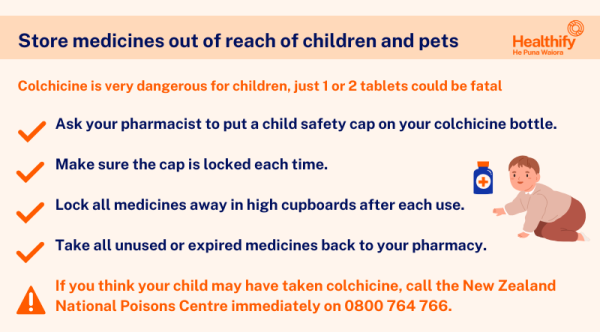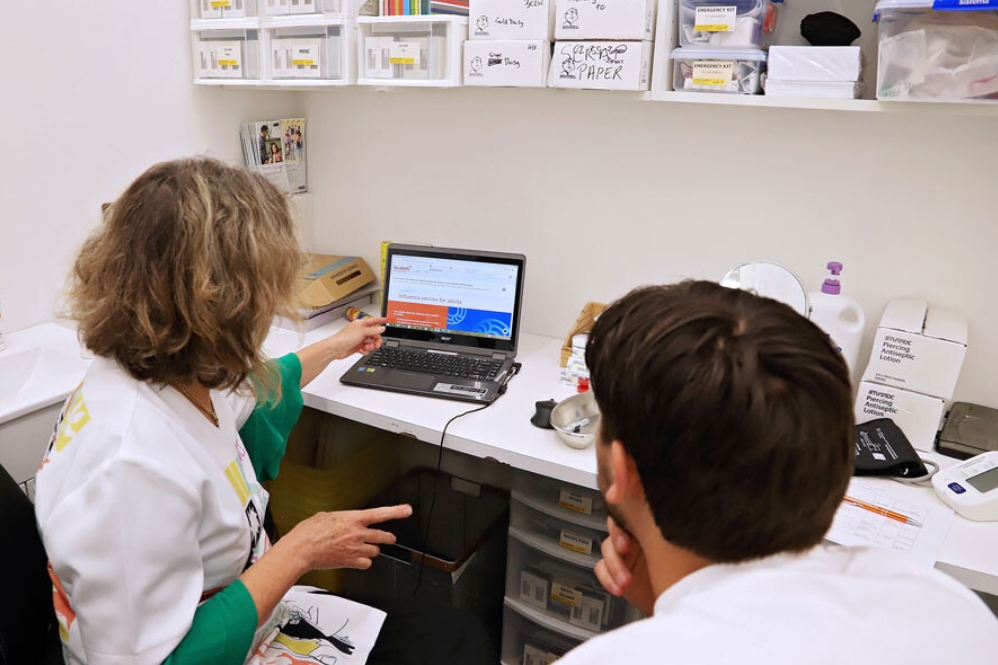Colchicine may be used for sudden (acute) pericarditis, to reduce chest pain and ease inflammation. It may also be used if your symptoms tend to come back (recurrent pericarditis). Colchicine may be used in combination with NSAIDs such as ibuprofen or when NSAIDs aren't suitable. Colchicine reduces the duration of your symptoms and helps prevent the condition from recurring.
Pericarditis is inflammation of the lining around the heart, called the pericardium. There are 2 types of pericarditis – acute and chronic. Acute pericarditis comes on suddenly, with symptoms starting rapidly. Chronic pericarditis lasts for 3 months or longer.
Note: In Aotearoa New Zealand, colchicine is approved by Medsafe (New Zealand's agency for licensing medicines) for use in gout. Colchicine is not approved for use in pericarditis in New Zealand, but it is recommended in other countries for this use. Your healthcare provider will talk to you about the risks and benefits of this medicine so you have enough information to make a decision about using it ‘off-label’. Read more about unapproved medicines.
Keep medication out of reach of children
|
Store colchicine out of reach of children – as little as 1 or 2 tablets may be fatal for children
|

Image credit: Healthify He Puna Wairoa






